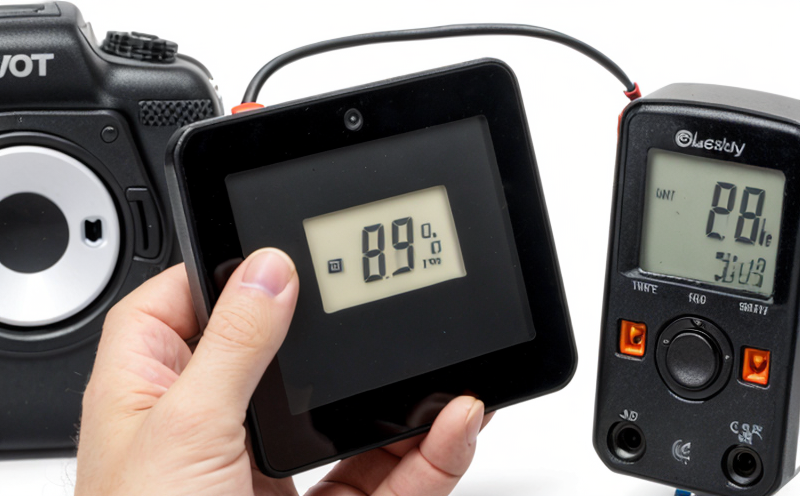Wireless Charger Efficiency Testing in Electronics
The demand for wireless charging technology continues to grow across various consumer electronics products. Ensuring the efficiency of these chargers is critical not only for performance but also for safety and regulatory compliance. This service focuses on testing the efficiency of wireless chargers, ensuring they meet industry standards and customer expectations.
Wireless charger efficiency testing involves measuring the power transfer from the charging pad to the device being charged. This test ensures that minimal energy is lost during the transfer process, maximizing user convenience and extending battery life. The service employs advanced instrumentation that simulates real-world conditions under which wireless chargers operate.
During specimen preparation for this testing, devices are carefully selected based on their specifications and expected performance in a wireless charging environment. The chargers themselves undergo thorough inspection to ensure they meet initial safety criteria before undergoing efficiency tests. Once prepared, the specimens are placed into a controlled test environment where various parameters such as voltage, current, power output, and time are monitored.
The testing process involves placing the device on the charging pad for an extended period while monitoring these parameters continuously. The data collected is then analyzed to determine if the charger meets specific efficiency thresholds set by industry standards. Compliance with these standards ensures that the product performs optimally without any risk of overheating or other safety hazards.
Efficiency tests are conducted using advanced equipment capable of simulating multiple scenarios relevant to everyday use, such as charging a phone while in standby mode, during calls, or when fully depleted. This approach provides insights into how well the charger can handle different situations encountered by consumers.
The results of these tests provide valuable information about the performance and reliability of wireless chargers. They help manufacturers identify areas for improvement and ensure their products meet stringent quality standards before reaching market shelves. By offering this comprehensive testing service, we contribute significantly to maintaining high levels of safety and satisfaction among users.
Applied Standards
| Standard | Description |
|---|---|
| IEC 61984-3 | Wireless power transfer systems for portable electronic devices - Part 3: Performance requirements and measurement procedures. |
| EN 62103-5 | Electromagnetic compatibility (EMC) of wireless power transmission systems - Part 5: Measurement methods for efficiency and other performance parameters. |
The testing procedures adhere to internationally recognized standards like IEC 61984-3, which outlines the necessary performance requirements and measurement methods for wireless power transfer systems. Another key standard is EN 62103-5, which provides detailed guidelines on how to measure efficiency and other critical parameters.
Compliance with these standards ensures that our testing results are reliable and internationally accepted. It also helps manufacturers understand what levels of performance they need to achieve for their products to pass rigorous quality checks.
Industry Applications
- Consumer electronics companies looking to improve the efficiency of their wireless chargers.
- Manufacturers seeking to ensure compliance with international standards related to wireless power transfer systems.
- Developers aiming to optimize the performance of their devices under various charging scenarios.
| Industry Application | Description |
|---|---|
| Smartphone manufacturers | Ensure that their wireless charging solutions meet strict efficiency requirements, enhancing user experience. |
| Tablet producers | Promote the reliability and longevity of tablets through optimized wireless charging technology. |
The application of this service extends beyond just consumer electronics; it also plays a crucial role in promoting safer and more efficient wireless power transfer systems across industries. By adhering to these standards, companies can enhance the overall user experience while ensuring compliance with regulatory requirements.
Customer Impact and Satisfaction
Our service directly impacts customer satisfaction by delivering accurate and reliable efficiency data for wireless chargers. This ensures that consumers receive products that perform consistently well across different scenarios, which is particularly important given the diverse ways in which these devices are used.
By providing detailed reports based on our testing results, we enable manufacturers to make informed decisions about product improvements. This not only enhances the quality of their offerings but also builds trust among customers who value safety and reliability when it comes to electronic products.
In addition, compliance with international standards demonstrates a commitment to maintaining high-quality standards within the industry. This can lead to increased market share as consumers increasingly prioritize safe and efficient technology solutions.





